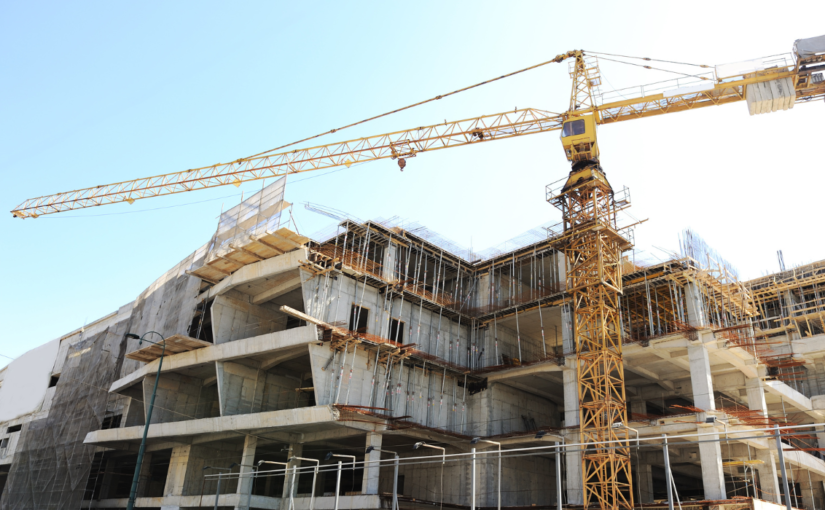back
Construction Loans: Understanding the Basics
01-2023

Many business owners and investors in commercial real estate find the subject of construction loans to be confusing and difficult to navigate. However, if you have a firm grasp on the fundamentals of these loans, you will find that securing financing for your new building project is much less of a headache. This article will explain everything you need to know about construction loans, including how to qualify for one and the various options available to you.
Let’s begin by discussing what a construction loan actually is. Commercial real estate construction loans are short-term loans used to pay for the acquisition, planning, design, and construction of a new commercial building. Banks and other lending institutions offer construction loans to cover the price of labor, materials, and other project expenses.
The loan-to-value (LTV) ratio is a central concept in the realm of construction loans. Lenders use this ratio to establish the maximum loanable amount relative to the property’s value. By dividing the loan amount by the value of the property, one arrives at the LTV ratio. If a bank is willing to lend up to 75% of a property’s value, the LTV ratio is 75%.
The interest rate is another key concept when talking about building loans. As the lender is taking on more risk with a construction loan, the interest rate is typically higher than with a standard loan. However, the interest rate is subject to change based on the loan’s specifics and the lender.
Construction loans and construction-to-permanent loans are the two most common forms of financing for commercial building projects. Short-term loans used to pay for the construction of a new building are known as “traditional construction loans.” Borrowers with these types of loans must pay interest only while the building is being constructed, and the interest rates are typically higher than those of more conventional loans.
Contrarily, a construction-to-permanent loan serves as temporary funding during construction and as long-term funding for the property after construction is complete. Due to the fact that they serve as both a construction loan and a permanent loan, “all-in-one” loans have earned another name. The interest rate on these loans is typically lower than that of standard construction loans, and the borrower must continue making payments on both the interest and the principal throughout the duration of the project’s construction.
The steps required to apply for a construction loan are not standardized and can change from one lender to the next. The following are, however, the general steps involved:
- Acquiring pre-approval for a loan is the initial step in the application process. This requires you to fill out a loan application and disclose personal and financial details to a potential lender.
- After receiving pre-approval for your building project, you will need to present the lender with a comprehensive construction budget and set of construction plans. Materials, labor, and any other project-related costs should all be included here.
- Lenders typically have appraisals conducted to establish the fair market value of properties they finance. Lenders use this information to determine loan amounts based on the loan-to-value ratio.
- Next, you’ll schedule a closing date after the lender has reviewed the appraisal results and given their final approval on the loan. Closing costs, like title fees and appraisal costs, are typically required to complete a loan transaction.
- During the construction phase, the lender will issue what are known as “draws,” or installments of funding. These depend on reaching milestones in the building process.
Keep in mind that commercial property construction loans usually necessitate extensive paperwork and investigation. Lenders will require extensive project documentation, including detailed plans, budgets, and financial forecasts. The borrower’s credit history and work history in construction will also be considered. In addition, many financial institutions stipulate that borrowers have some form of equity in the project (typically a down payment) to reduce their exposure to risk.
In conclusion, any business owner or real estate investor looking to finance a new construction project would benefit greatly from a thorough understanding of the fundamentals of construction loans for commercial properties. The loan-to-value ratio, interest rate, loan types, and application process are just some of the fundamentals that should be understood before applying for a loan. The application process for a construction loan can be simplified and made more manageable with some prior knowledge and planning.
F2H Capital Group is a debt advisory firm specializing in negotiating the best terms for your commercial real estate projects. The company offers a range of financial products and services, including fixed loans, bridge loans, and construction loans across all asset types. Please contact us for any of your financing needs.

